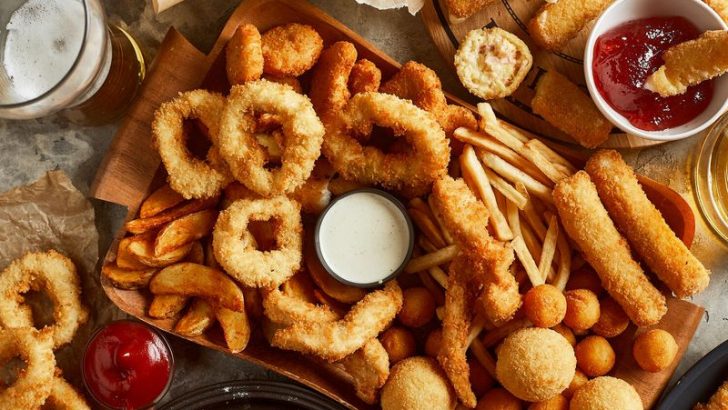In many kitchens, certain foods lurk that health professionals often steer clear of. This list explores 15 common items that may carry hidden risks, from contributing to chronic diseases to impacting daily wellness. Being aware of these foods can guide healthier choices and lead to improved overall well-being.
1. Processed Meats

Processed meats like hot dogs and sausages are often enjoyed at barbecues and picnics. However, they contain high levels of sodium and unhealthy fats, which can contribute to heart disease and certain types of cancer. Preservatives like nitrates are added to enhance flavor and shelf life, yet they have been linked to cancer risks. A study found that people who consume high amounts of processed meats have a 20% higher risk of developing certain diseases. It’s wise to be cautious and consider healthier alternatives like fresh meats or plant-based options.
2. Sugary Beverages

Sugary beverages like sodas and fruit juices are often consumed for their sweet taste and refreshing quality. Yet, these drinks are loaded with added sugars that can lead to obesity, type 2 diabetes, and dental problems. A single can of soda can contain up to 40 grams of sugar, which is more than the recommended daily intake. The excessive calories from these drinks contribute to weight gain. Many health experts suggest opting for water or unsweetened teas as better alternatives to keep hydrated without the added sugars.
3. Refined Grains
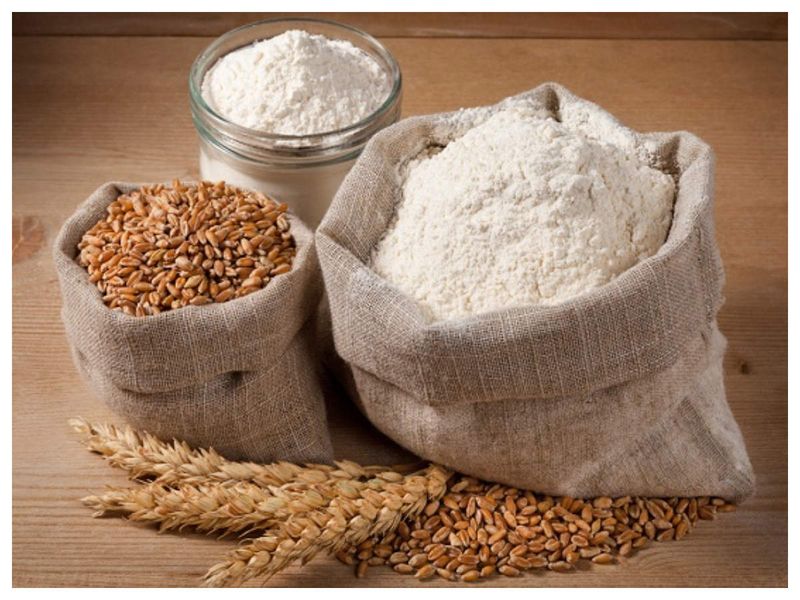
Refined grains like white bread and pastries are staples in many households. These foods are made from grains that have been stripped of their nutrients and fiber during processing, leading to rapid spikes in blood sugar levels. Such spikes can increase the risk of developing type 2 diabetes. Unlike whole grains, refined grains lack essential vitamins and minerals, making them less beneficial for health. Switching to whole grain options can provide more nutrients and help maintain stable blood sugar levels, supporting overall wellness.
4. Full-Fat Dairy Products
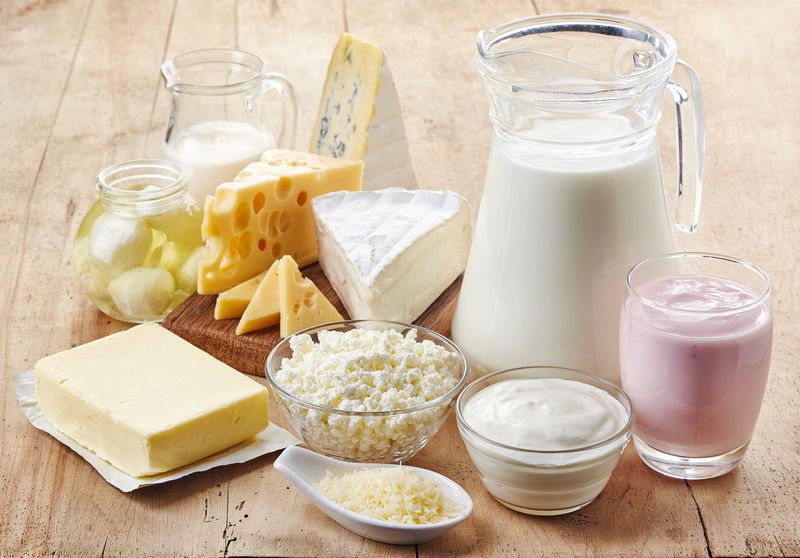
Full-fat dairy products like whole milk and cheese are known for their rich taste and creamy texture. However, they are high in saturated fats, which can raise LDL cholesterol levels in the blood. This increase in bad cholesterol is linked to a higher risk of heart disease. While dairy products are a good source of calcium and protein, choosing low-fat or fat-free versions can reduce the intake of saturated fats. Alternatives like almond milk or soy cheese offer similar nutritional benefits without the added risks.
5. Fried Foods

Fried foods such as French fries and fried chicken are loved for their crispy texture and savory flavor. Yet, they are cooked in oils high in unhealthy fats, contributing to weight gain and heart disease. The frying process often involves trans fats, which can further elevate the risk of cardiovascular issues. A diet high in fried foods is also linked to increased inflammation in the body. Baking or grilling foods instead can be a healthier way to enjoy similar flavors with less oil and fewer calories.
6. Candy and Sweets

Candy and sweets are delightful treats that many can’t resist, especially during festive seasons. However, their high content of added sugars and unhealthy fats can lead to weight gain and insulin resistance. Consuming too much sugar is also linked to an increased risk of developing cavities and other dental problems. Moderation is key, and it’s beneficial to savor these treats occasionally rather than regularly. Opting for fruits or dark chocolate can satisfy sweet cravings with fewer health implications.
7. Margarine and Hydrogenated Oils

Margarine, often used as a butter substitute, contains hydrogenated oils that can raise bad cholesterol levels. These trans fats are known to increase the risk of heart disease significantly. Despite its convenience in baking and cooking, the health implications of consuming margarine are worth considering. Opting for heart-healthy alternatives like olive oil or avocado can be beneficial. These provide similar culinary uses without the harmful effects associated with trans fats. Awareness and careful selection can contribute to better heart health.
8. Canned Soups
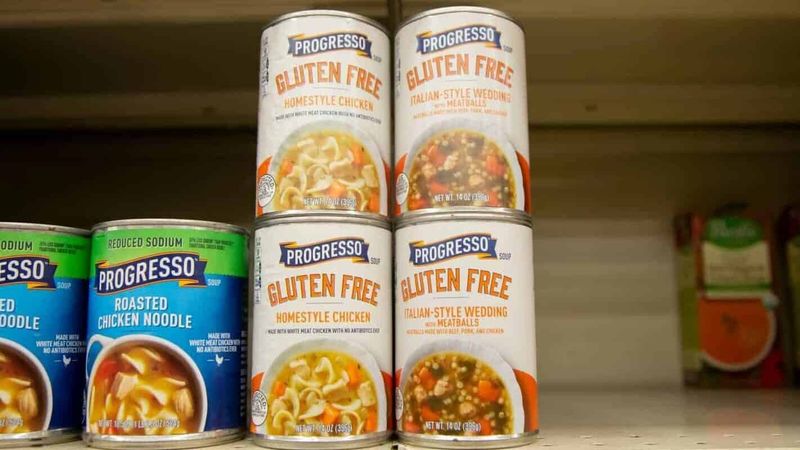
Canned soups are often chosen for their convenience and long shelf life. Yet, many canned soups are high in sodium and preservatives, which can contribute to high blood pressure. Consuming too much sodium is linked to an increased risk of heart disease. It’s surprising how a seemingly healthy option like soup can carry hidden health risks. Preparing homemade soups with fresh ingredients can provide a nourishing alternative without the excessive salt. Reducing sodium intake is essential for maintaining heart health over time.
9. Diet Sodas
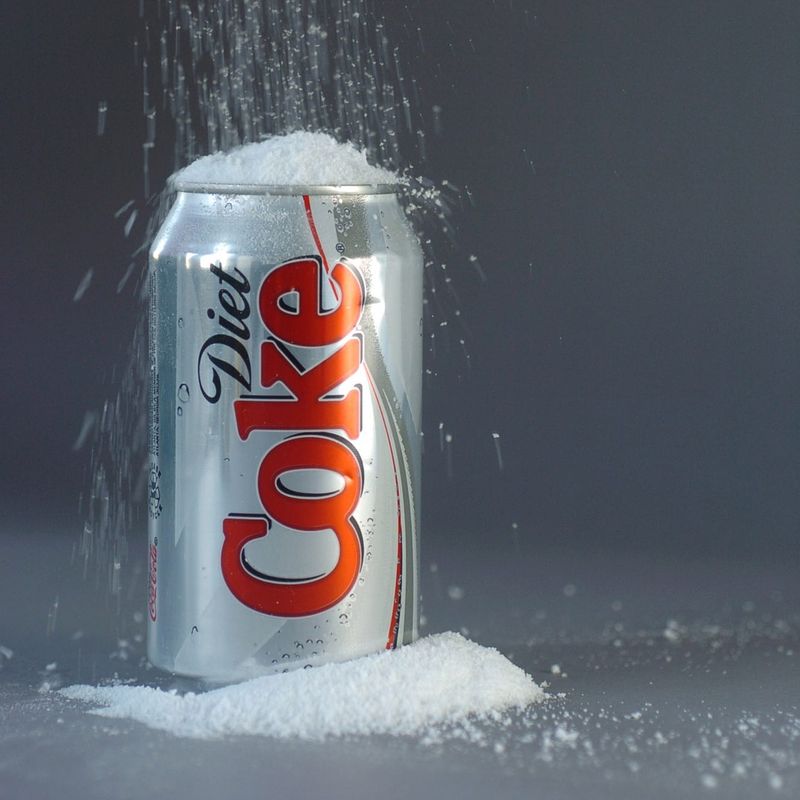
Diet sodas are marketed as a lower-calorie choice, but they contain artificial sweeteners like aspartame. These have been associated with negative health effects, including metabolic issues. Some studies suggest that diet sodas may not aid in weight loss as effectively as perceived. The chemicals used in these drinks can trigger cravings for sweet and high-calorie foods, undermining diet efforts. Exploring alternatives like sparkling water with a splash of natural juice can offer a refreshing taste without artificial additives.
10. Energy Drinks

Energy drinks are popular for their quick energy boost, but they come with high levels of caffeine and sugar. Excessive consumption can lead to increased heart rate and high blood pressure. Some energy drinks contain ingredients that can affect the heart rhythm, posing health risks. While they are marketed as performance enhancers, the potential side effects shouldn’t be overlooked. For sustained energy, choosing natural sources like nuts or a balanced snack may offer better results with fewer health risks.
11. Artificially Colored Foods
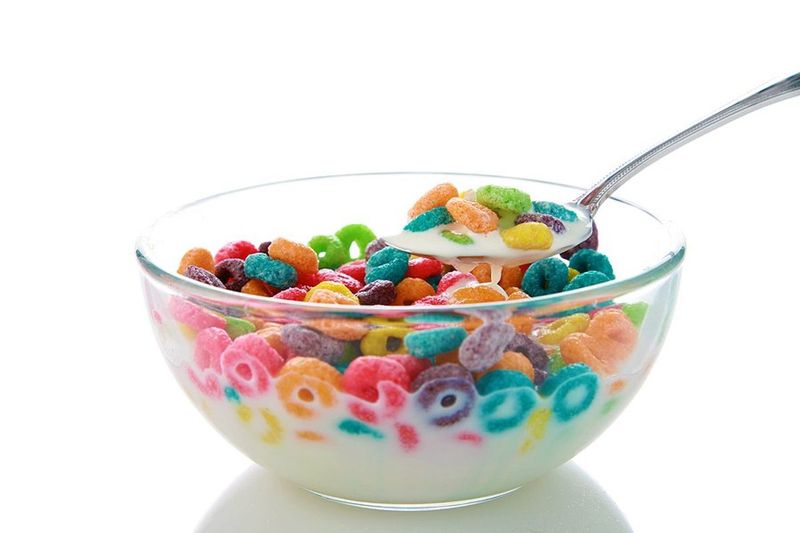
Artificially colored foods are eye-catching and often appeal to children. However, certain artificial colors have been linked to hyperactivity and allergic reactions. The vibrant colors come from synthetic dyes that may carry potential health risks, especially when consumed in large quantities. Parents may notice changes in behavior after consumption, raising concerns about their safety. Opting for foods colored with natural ingredients like beet juice or turmeric can provide a safer alternative. Awareness of these impacts can guide better food choices.
12. Granola Bars
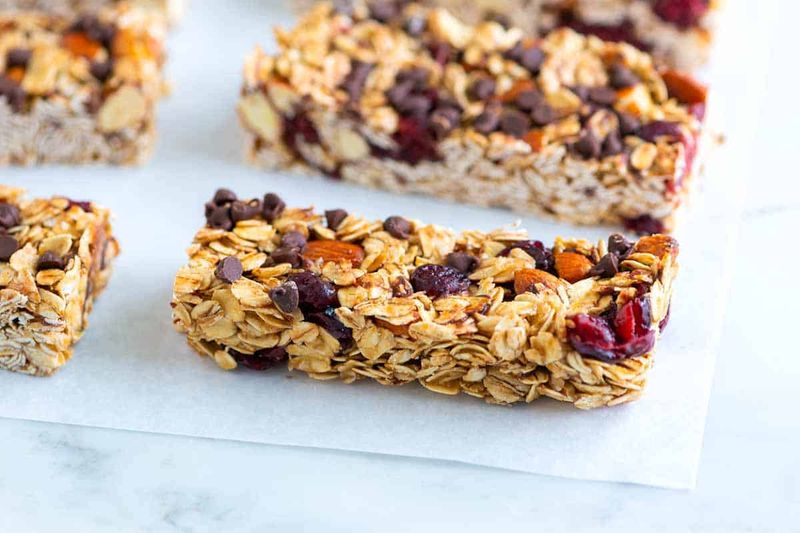
Granola bars are often perceived as a healthy snack, but many are high in sugar and unhealthy fats. Despite their nutritious appearance, these bars can lead to sugar crashes and unwanted weight gain. They are often laden with sweeteners and preservatives, making them less ideal for a healthy diet. Reading labels carefully can help identify better options with lower sugar and higher fiber content. Homemade granola bars can also be crafted to control ingredients, ensuring a more wholesome snack experience.
13. White Potatoes

White potatoes are a common staple, but their high glycemic index can lead to rapid spikes in blood sugar. This can be a concern for those managing weight or diabetes. While they are rich in vitamins like vitamin C, the impact on blood sugar can outweigh the benefits for some individuals. Sweet potatoes offer a lower glycemic alternative with additional nutrients like beta-carotene. Balancing potato intake with other low-glycemic foods can support healthier blood sugar levels and overall wellness.
14. Processed Cheese

Processed cheese products are convenient and affordable, but they often contain high levels of sodium and unhealthy fats. These ingredients can contribute to heart disease and other health issues over time. Unlike natural cheeses, processed varieties may lack the essential nutrients found in dairy. Opting for natural cheeses or reduced-fat options can provide the desired taste with fewer health concerns. Understanding the differences between cheese types can guide healthier choices in the kitchen.
15. High-Mercury Fish

Fish like mackerel and shark are known for their high mercury content, posing a risk to the nervous system. Mercury is a toxic element that can accumulate in fish, affecting human health when consumed in large quantities. Pregnant women and children are advised to avoid these fish due to potential developmental issues. Choosing low-mercury options like salmon or sardines can provide the nutritional benefits of fish without the associated risks. Awareness of mercury levels in seafood is essential for safe consumption.

Well, hello there!
My name is Jennifer. Besides being an orthodontist, I am a mother to 3 playful boys. In this motherhood journey, I can say I will never know everything. That’s why I always strive to read a lot, and that’s why I started writing about all the smithereens I came across so that you can have everything in one place! Enjoy and stay positive; you’ve got this!

